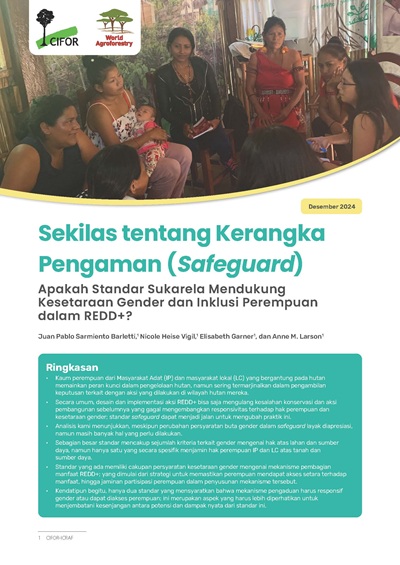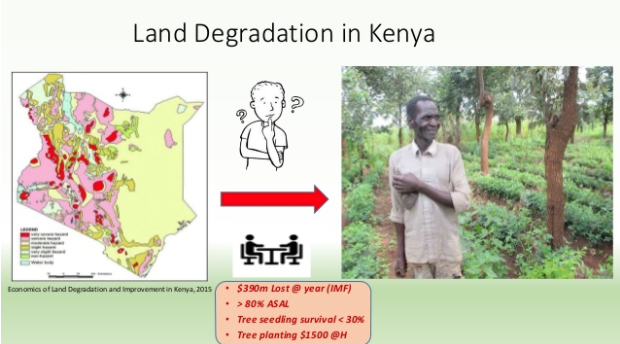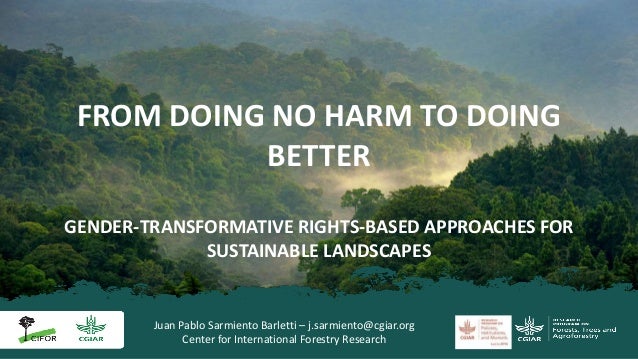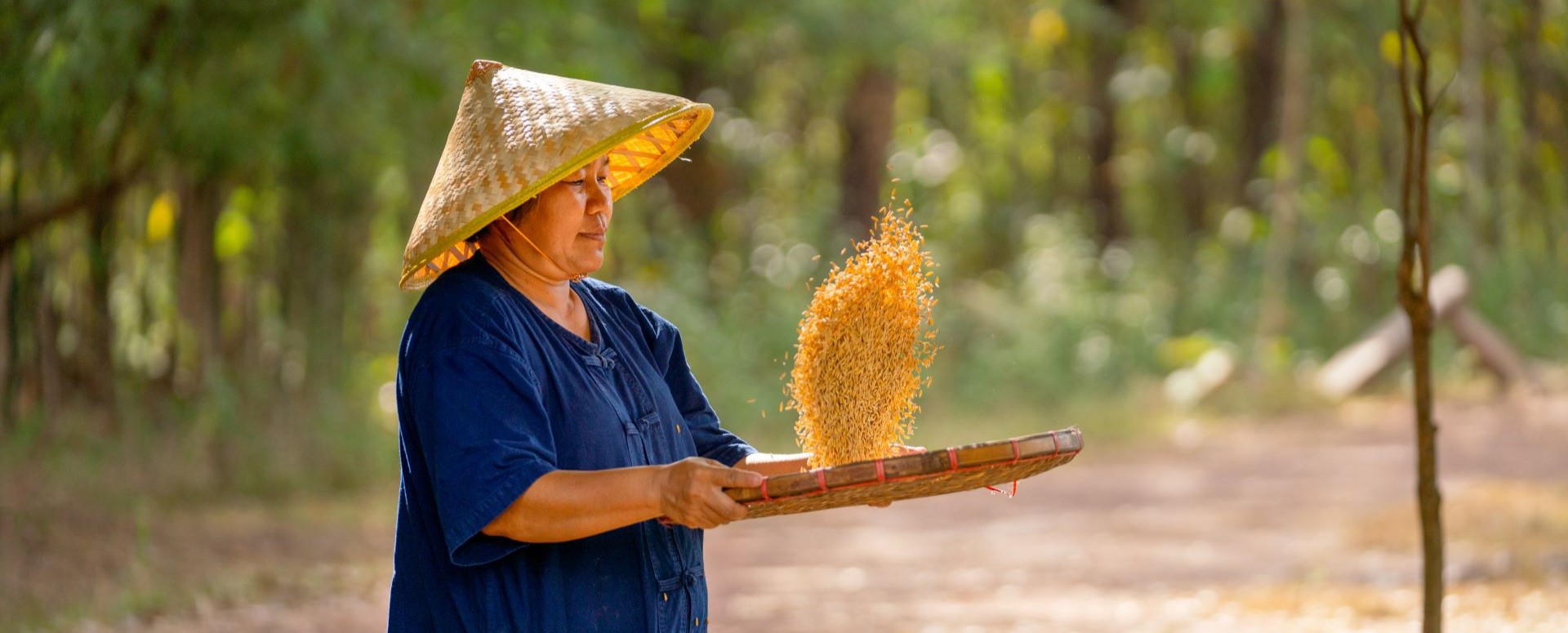CIFOR-ICRAF explores the dynamics of gender and other social categories in forestry and agroforestry, and how these influence tenure security, livelihoods, climate change policy and action, food security and nutrition, inclusive value chains, governance, access to energy, migration and landscape restoration.
A deep and evolving understanding of gender and other social structures that mediate women and men’s roles and relations underlies all of our activities, whether as a focus of specific studies, integrated in all research projects, or within our own organization. Taking an intersectional approach to gender equity, we examine how gender intersects with ethnicity, wealth status, caste and age to influence outcomes.
We also recognize gender equity as an inherent human right and not just a mechanism to deliver greater impact. While win-wins are ideal, we recognize that some situations call for reconciling gender equity and environmental objectives.
Gender: Fast facts
About this team
Recognizing that the full development of production and livelihood options must consider the different roles of women and men, our work aims to explore gender dynamics and inform more inclusive and equitable policy and practice on the topics of governance principles and practice, rights and justice, gender and social inclusion, integrated approaches to multifunctional landscapes, and policy development and implementation. We aim to understand and address barriers to gender equity, to enhance inclusion, representation and participation. Our multi-pronged approach includes capacity development, strategic partnerships, outreach and engagement, and monitoring and adaptive learning.
Using a variety of media – from videos to photo essays to research stories – we aim to amplify the voices of women, men and youth in forest and tree landscapes around the world.










































